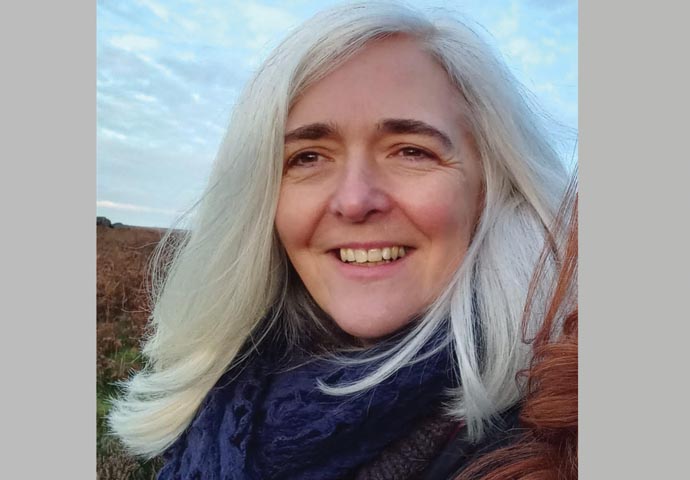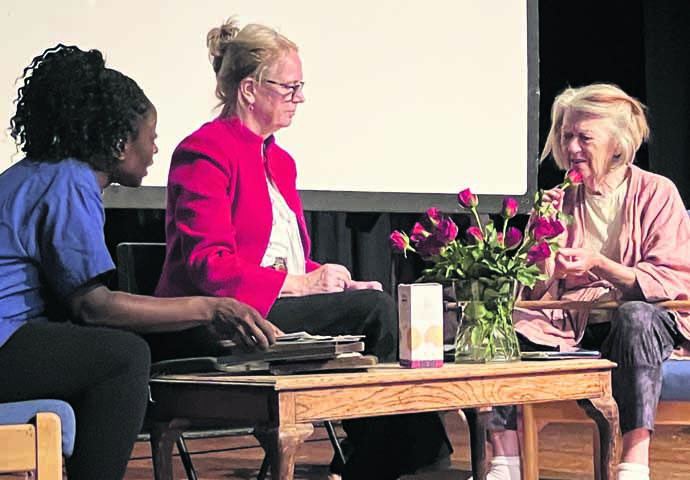Lifestyle choices matter with dementia
Lucy Legg tells of a collaborative project aimed at helping people cope with the impact of dementia on individuals, friends and families
Thursday, 19th September 2024 — By Lucy Legg

WITH World Alzheimer’s Day on Saturday September 21 you might hear a lot about dementia for a day or two. My hope is that I might encourage you to consider brain health for a little longer, as many of the contributory factors to dementia can be influenced by our lifestyle choices.
Dementia is the general term used to describe a particular set of symptoms that are caused by a large variety of different diseases and conditions. The most well-known of these symptoms is memory loss.
However, mood and behavioural changes, problems with vision, general confusion, and new problems with language are also important symptoms to look out for. I say new problems as, for dyslexics like me, language difficulties can be features of our speech, memory function and reading from childhood and have nothing to do with dementia.
Alzheimer’s disease is the most common type of dementia. It is caused by the abnormal build-up of two proteins in the brain. These protein deposits are not a normal part of aging.
For the currently available treatments for Alzheimer’s disease to work, the levels of these abnormal brain proteins must be low. We therefore need to be brave and go to our GPs for early diagnosis.
Vascular dementia has a different mechanism. It is caused by an interruption to the flow of blood within the brain, resulting in a lack of oxygen and nutrients, which in turn damages the brain cells. So by looking after your heart and blood vessels you will help to prevent heart attack and stroke, but also look after your brain.
You can take action to reduce the risk of developing many forms of dementia.
— Keep physically active and socially connected.
— Challenge your brain to explore new activities.
— Maintain a healthy weight
— Keep cholesterol and blood pressure under control.
— Seek early solutions for hearing loss.
— Stop smoking.
— Limit or eliminate alcohol.
—Manage diabetes and reduce sugar intake.
Sadly, some forms of dementia do develop because of genetic predispositions that we cannot control. Head injuries can be another cause, and research is ongoing to limit the impacts on the brain of playing contact sports.
So why am I writing this?
More than 15 of my friends and loved ones have ended their lives with dementia. None of us were prepared for the impact that dementia would have on each of these vibrant and unique people, or on the lives of their families and friends as they tried to cope, when many of the usual National Health Service pathways to support are not offered to patients with dementia.

Actors in the stage production The Lost Life of Tilly MacLeod, which was directed by Oscar Simms, from left, Amie Buhari, Olivia Maffett and Sandra Voe in the title role
As a result, I conceived a project that had at its core AL Dowie’s stage play The Lost Life of Tilly MacLeod.
A sixth-form assembly, community art exhibition, on the theme of identity, craft workshops for care home residents, and a dementia awareness week based at Kentish Town Health Centre formed associated threads.
These together aimed to weave a network of support around the most vulnerable within our community, by offering the public a multi-sensory, multi-media and multi-disciplinary experience that would start conversations about dementia.
Initially, I worked alone generating creative content and persuading people of the power of this approach. In contrast, the final weeks brought together the most amazing group of people: medical research scientists; charities; support organisations; healthcare providers; theatre professionals; and volunteers. Almost all were based in Camden. Each offered to share their skills, time, and knowledge, to raise awareness of dementia.
Much to my delight the mural that we created with the residents at Rathmore House Care Home has recently been chosen by the managers as their entry for an art competition. We had invaluable support from St Columba’s Church of Scotland who, despite being a charity needing to raise money for themselves, offered us free rehearsal space for the play, and we received additional sponsorship from family members who have lost someone to dementia.
The response to The Lost Life of Tilly MacLeod Dementia Awareness Events has been phenomenal. People have asked questions, donated to dementia charities, read AL Dowie’s novel on which the play was based, started volunteering, and above all confirmed my belief in the power of community.
• Lucy Legg is director of ArtLed Productions CIC and project coordinator for The Lost Life of Tilly MacLeod.